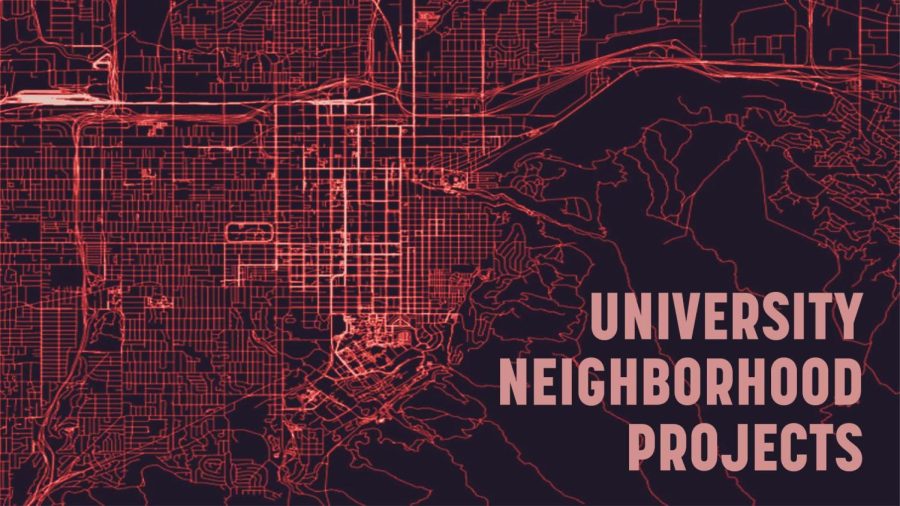University Neighborhood Partners Engaging Salt Lake City’s West Side
(Graphic by Sydney Stam | The Daily Utah Chronicle)
December 14, 2021
As a leading academic institution in the state, the University of Utah plays a prominent role within the local community.
One of the most significant programs by the U focusing on community engagement is known as University Neighborhood Partners. Created in 2001, UNP was the result of an explicit move by then U President Bernie Machen to develop infrastructure for community engagement with the long-term goal of increasing access to higher education for the west side residents of Salt Lake City. More than 20 years later, the current U leadership continues this mission.
UNP creates joint partnerships between the U and west side communities focused on resident-identified issues. They do not run singular programs, but instead provide a common ground where community partners and individuals can share ideas, identify common goals and create their own initiatives.
UNP is committed to providing a space where lesser-known groups living on the west side can be a part of the decision-making that affects their communities. UNP’s role in this partnership is to encourage active communication, relationship building, resource sharing and capacity building.
To this end, UNP began their work with research. From 2001 to 2002, UNP conducted nine months of interviews with over 250 west side community residents, leaders, organizations, city officials and University faculty and administrators, to identify the critical needs and strengths of west side neighborhoods.
These interviews identified four critical priorities: to increase the capacity of organizations and others to work in the areas of housing, job training, small business development, health and environment, a need for greater educational and employment opportunities for youth, to develop greater skills and opportunities for resident leaders to be able to address local issues and to find ways to overcome mistrust and conflict stemming from differences.
According to Jennifer Mayer-Glenn, the director of UNP, this partnership benefits the west side community by facilitating a culturally responsive environment where University resources can be utilized within the community.
“We work very hard to make sure that community voices are the most important voices in our space,” Mayer-Glenn said. “That’s what guides us to the projects we partner with.”
Mayer-Glenn spoke about the Bridge Training Clinic which came out of a lack of culturally responsive mental health support in the community.
“So, we created a welcome center staffed by University of Utah College of Social Work interns, where community members can come and receive initial support in whatever it is they need,” Mayer-Glenn said. “It might be helping them complete a job application, or help with accessing resources like rent relief. We work to create opportunities for community members to build their own capacity to address barriers to education or health.”
Since its start in 2001, UNP has created several partnership areas in which they operate: “Education Pathways,” “Community Capacity and Wellbeing,” “Community Leadership” and “Community-Engaged Scholarship,” all of which address issues brought up by community members. This list, yet, is just the start for UNP.
“Right now, we are in the middle of having discussions about committing to West Valley City,” Mayer-Glenn said. “Like before, we will start by doing some community listening and asset mapping. We certainly do not want to communicate in any way that we are coming in to try and save West Valley City.”
Mayer-Glenn said the people of West Valley City are completely competent to do the work themselves, they just may need more support in organizing.
“We really want to identify concerns in terms of community leaders and community organizations that already exist,” Mayer-Glenn said.
To continue serving the west side of Salt Lake City, UNP accepts donations from individuals and institutions alike. Among the many donations received in the 2020-2021 fiscal year, one of the largest came from the Clark and Christine Ivory Foundation.
In an email correspondence with Michael Parker, vice president of public affairs for Ivory Homes, Parker explained the organization’s focus on support of the individual.
“We care for vulnerable populations and strive to amplify an individual’s capacity to advance economically by improving access to education, affordable housing and sustainable communities,” Parker said. “UNP is making significant strides to supporting upward mobility in these key areas of focus.”
With the help of donations and the partnership between the U and the west side community of Salt Lake City, UNP directs its support to help communities meet their own needs.









